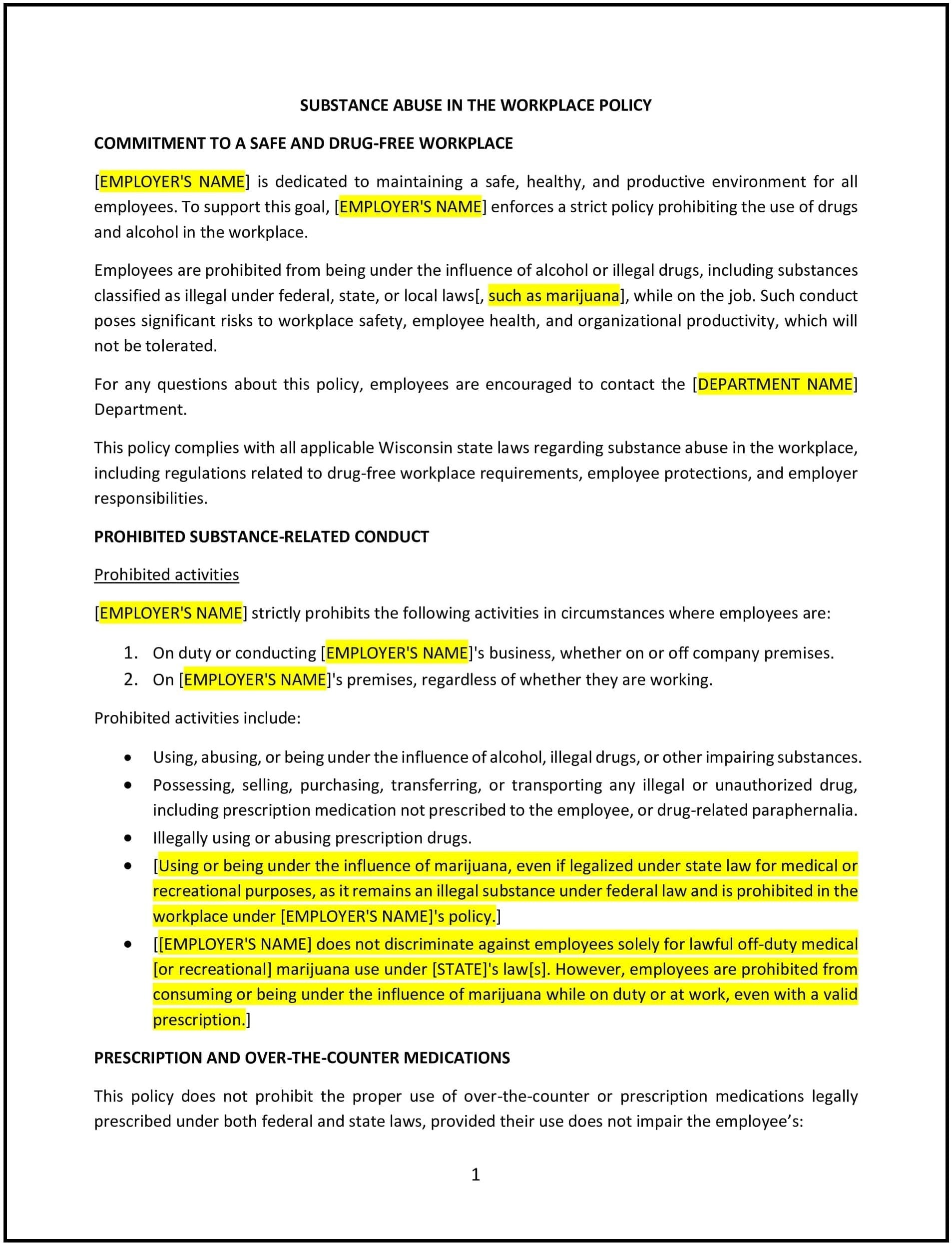Substance abuse in the workplace policy (Wisconsin): Free template
Got contracts to review? While you're here for policies, let Cobrief make contract review effortless—start your free review now.

Customize this template for free
Substance abuse in the workplace policy (Wisconsin)
In Wisconsin, a substance abuse in the workplace policy outlines an organization’s commitment to maintaining a safe, productive, and drug-free work environment. This policy ensures that employees understand the expectations regarding drug and alcohol use while at work, providing a framework for prevention, testing, and addressing violations.
This policy promotes compliance with Wisconsin labor laws and federal regulations, such as the Drug-Free Workplace Act, for applicable employers.
How to use this substance abuse in the workplace policy (Wisconsin)
- Define prohibited behaviors: Clearly state that the use, possession, or distribution of illegal drugs and the misuse of alcohol or prescription drugs are prohibited in the workplace.
- Outline testing procedures: Specify when drug or alcohol testing may occur, such as pre-employment, random testing, or post-incident testing, while adhering to Wisconsin laws.
- Address consequences: Detail the disciplinary actions for policy violations, including warnings, mandatory rehabilitation, or termination, based on the severity of the incident.
- Provide resources: Offer information about employee assistance programs (EAPs) or community resources to support employees dealing with substance abuse.
- Support compliance: Align the policy with state and federal laws, ensuring adherence to applicable regulations while protecting employee rights.
Benefits of using a substance abuse in the workplace policy (Wisconsin)
- Promotes safety: Reduces the risk of workplace accidents and injuries caused by impaired employees.
- Supports compliance: Ensures the workplace adheres to Wisconsin state laws and federal regulations, such as the Drug-Free Workplace Act.
- Enhances productivity: Minimizes the impact of substance abuse on employee performance and overall productivity.
- Protects company reputation: Demonstrates a commitment to maintaining a safe and professional work environment.
- Provides support: Offers resources for employees to seek help for substance abuse issues, fostering a supportive workplace culture.
Tips for using a substance abuse in the workplace policy (Wisconsin)
- Communicate the policy: Ensure all employees understand the rules and expectations regarding substance use by including the policy in handbooks and discussing it during onboarding.
- Train managers: Provide training for supervisors to recognize signs of substance abuse and handle incidents appropriately and sensitively.
- Document incidents: Maintain detailed records of substance-related incidents and the actions taken to address them to ensure fairness and legal compliance.
- Offer support: Encourage employees to seek help through EAPs or other available resources to address substance abuse issues.
- Regularly review the policy: Update the policy to reflect changes in state laws, federal regulations, or workplace practices.